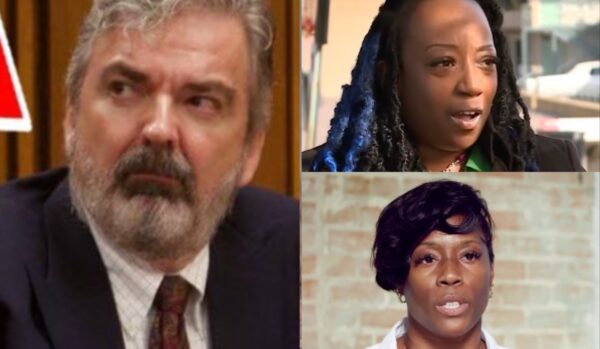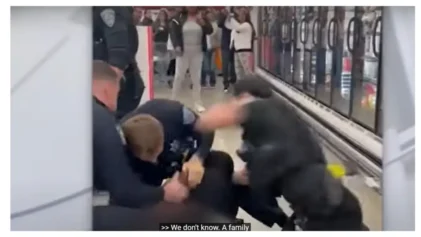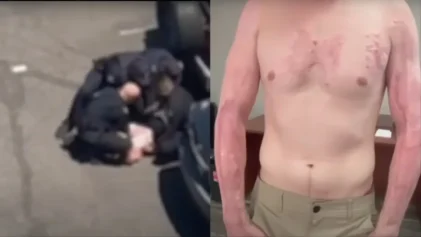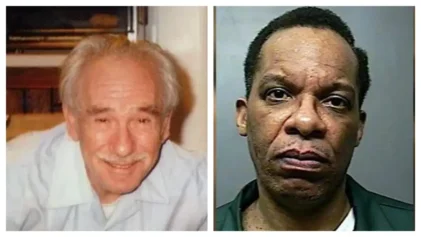An Ohio lawyer is hoping a judge acquits him after he admitted to illegally voting in two of the last general elections.
James Saunders, aged 56, has been charged with two felony counts of voter fraud.
Saunders, a Shaker Heights attorney, reportedly cast his vote in both Cuyahoga County, Ohio, and Broward County, Florida, during the same election cycles. Scott Roger Hurley, the assistant public defender assigned to his case, argued that he exercised his voting rights in both locations as he is a property owner and registered voter in both places, according to Cleveland.com.

The defendant opted to have Cuyahoga County Common Pleas Court judge Andrew Santoli deliver a verdict in his case instead of a jury of his peers.
His lawyer asked Santoli to “come to a just result” that acknowledges that his client made a mistake and the client should not be held criminally liable.
Andrew Rogalski, an assistant county prosecutor, countered that argument, saying the defense that Saunders made a mistake might have worked if the Trump supporter had only voted in two different states once. But he did it twice.
“The fact that you do that in consecutive general elections I think takes ‘accident’ to the land of imaginary doubt and not reasonable doubt,” Rogalski said.
Saunders is an active Republican with a history of supporting the GOP financially.
Federal Elections Commission filings noted that Saunders made monthly donations to then-President Donald Trump’s reelection campaigns and conservative political groups during the years in question.
During the court proceedings, witnesses, including elections officials from Cuyahoga County and Broward County, Florida, as well as an Ohio Bureau of Criminal Investigations agent, provided testimony regarding Saunders’ voting activities.
The witnesses testified on Oct. 21, 2020, that Saunders cast an in-person vote at the Cuyahoga County Board of Elections. Around the same time, he also requested an absentee ballot to be sent to an address he used in rural Virginia.
Eleven days later, on Nov. 1, 2020, cellphone tower records placed the Republican’s cellphone at his Virginia address, where he wanted the ballot to go. It never arrived.
Saunders was later tracked driving down to his Florida address, where he voted in person on Nov. 3, 2020, Election Day.
A similar incident occurred in 2022.
Witnesses testified that Saunders voted by mail in Broward County on Nov. 2, 2022, but then proceeded to vote on Nov. 8, 2022, in person at his precinct in Shaker Heights.
In both instances, Hurley claimed his client’s actions were accidental.
Saunders’ case is similar to Tracey Kay McKee’s. In 2020, McKee, also a Republican, was sentenced to two years of probation and fines after being convicted of voting in her mother’s name in Arizona. Her mother died a month before that year’s election.
While Saunders and McKee, both white Republicans, intentionally violated voting rules, Pamela Moses, a Black Lives Matter activist, who served time for felonious election fraud, did not attempt to fraudulently vote due to a mistake by state officials.
She has since filed a federal lawsuit alleging officials in a “reckless and malicious” fashion violated her civil rights as they sought prosecution, even after discovering she was innocent. The complaint is currently unresolved.
Crystal Mason is awaiting the results of her final appeal to avoid imprisonment for illegal voting. In 2018, she was sentenced to five years behind bars for casting a vote in the 2016 Tarrant County election while ineligible. Mason, who was on supervised release for a previous tax violation, cast a provisional ballot in 2016, which was not counted, and she received assistance from a poll worker.
The central question in Mason’s appeal was whether she knew it was illegal to cast that ballot. Her lawyers argued she had no knowledge of the prohibition, while the prosecution contended that she did.
The decision from Santoli regarding Saunders’ case will be rendered during a scheduled hearing on Aug. 8.


